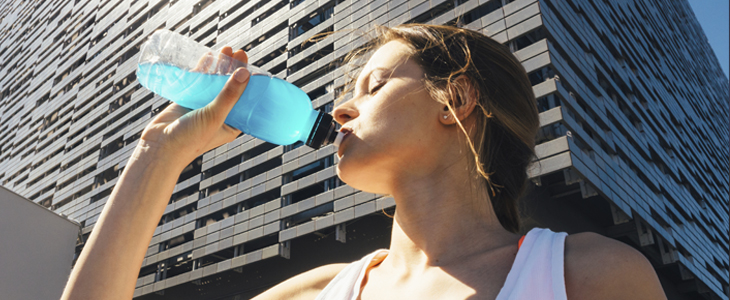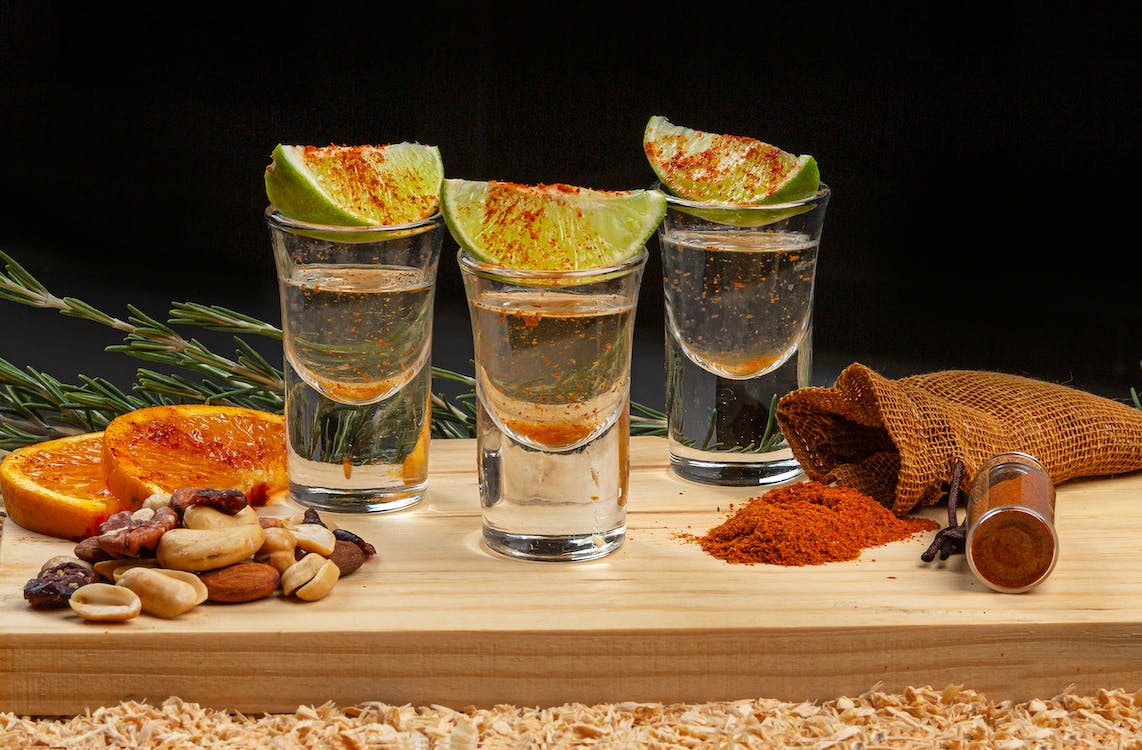 What you eat eventually effect your oral health too. Good nutrition is essential for a healthy mouth. Balanced diet helps to provide the nutrients necessary for proper functioning of the oral cavity which includes lubrication, swallowing, mastication, taste, speech and aesthetics. Proper nutrition make sure optimum salivary release, utmost important thing for a healthy and disease free oral cavity. However, not only solid foods of daily diet, beverages too play an important role in determining overall health status.
What you eat eventually effect your oral health too. Good nutrition is essential for a healthy mouth. Balanced diet helps to provide the nutrients necessary for proper functioning of the oral cavity which includes lubrication, swallowing, mastication, taste, speech and aesthetics. Proper nutrition make sure optimum salivary release, utmost important thing for a healthy and disease free oral cavity. However, not only solid foods of daily diet, beverages too play an important role in determining overall health status.
Water effect on Oral Health
More than half woman body is constituted by water. 99.5% of human saliva is water! This figure is sufficient to tell you that crucial role water plays in maintenance of integrity of oral tissues. Apart from being an important constituent of saliva, water plays an important role in prevention of dental decay and oral diseases by rinsing the mouth of food debris and bacteria.
Fluorides in water has the additional benefit of remineralizing the teeth, which helps to protect against dental caries and other oral diseases. However, like most foods/beverages, the frequency of water consumption has a bigger impact on oral health than the amount; water offers the most protective benefits if consumed after eating or drinking other substances, especially those that are high in sugar or acidity
Milk effect on Oral Health
Milk consumption also confers benefits for oral health. Although the primary compound of milk is a sugar, lactose. However, Lactose is much less cariogenic as compared with other sugars.
Being calcium and phosphorus rich, milk also helps to remineralize the teeth by acting as salivary buffer. Milk is provide protection against dental caries in children with poor oral hygiene, frequent sugar consumption and who did not use fluoride.The probiotic cultures in milk products may also help to combat oral.
Effects of Different Beverages on Oral Health
Regular Soft Drinks and Oral Health
Water and milk are good for oral health. On the other hand, some beverages have detrimental impacts on oral health. Regular soft drinks are high in sugar content, and as a result, can lead to caries development upon if consumed frequently. Apart from high in sugar content, soft drink are acidic in natures, regular soft drinks can also contribute to dental erosion by lowering the pH of the mouth.
Diet Soft Drinks and Oral Health
Many health conscious people would choose Diet soft drinks over regular soft drinks. Being lower in caloric content and sugar, diet soft drinks are considered to be healthier. However, a soft drink are generally acidic (pH between 3.00 and 3.70), still has a potential of lowering the pH of the saliva in the mouth, contributing to dental erosion as well as a decreased ability to combat the formation of dental caries.
Sport Drinks and Oral Health
Sport drinks also tend to be high in sugar, generally over 10g of sugar per 250mL, which equates to between 6-8% carbohydrate composition, depending on the manufacturer. These dinks tend to be high in acidity (pH of between 2.4 and 4.5), and thus affect oral health in a way similar to other sugary and acidic beverages. The erosive potential of sport drinks has been shown to be similar to diet soft drinks, but less than regular soft drinks and orange juice.
Fruit Juices and Oral Health
100% fruit juices impact oral health in a similar way to regular soft drinks, by promoting the development of dental decay. Although the sugar content in fruit juices originates from a natural source, it still requires the presence of bacteria to break down these fermentable carbohydrates in the oral cavity, and this can contribute to the formation of dental caries .
Fruit juices also tend to be acidic, ranging in pH from about 2.00 (lime and lemon juices) to 4.19 (orange juice) (United States Food and Drug Administration (USFDA], 2007). The low pH of these beverages lowers the salivary pH, which impairs the ability of the saliva to protect against dental decay.
However, drinking 100% fruit juice with a high Vitamin C content may actually help to protect dental health. Vitamin C promotes collagen synthesis, wound healing, and acts as a powerful anti-toxin, and in addition, improves the oral immune response by creating a protective barrier against bacterial endotoxins. Due to vitamin C’s role in improving immune function, it may help to combat periodontal disease, especially aspects involving gingival inflammation and bacterial infection.
Fruit-Flavoured Drinks and Oral Health
Like regular soft drinks and fruit juices, fruit flavoured drinks tend to be acidic and high in sugar content, and thus can affect oral health in a similar way. The high sugar content of these drinks, usually about 11-12g of sugar per 355mL (1 can), promotes the development of dental caries. Fruit flavoured drinks are also low in pH, which can promote acid erosion of the teeth. Like other sugary and acidic beverages, the impact of fruit flavoured drinks on oral health depends on their frequency and timing of consumption
Vegetable Juices and Oral Health
Like many of the other drinks discussed, vegetable juices are low in pH, and thus
increase the risk for dental erosion. However, although vegetable juices are generally acidic, with a pH ranging from 3.90 to 4.30, they are less acidic than most fruit juices (USFDA, 2007).
Alcohol and Oral Health
Alcohol consumption can also have an impact on oral health. Many types of alcohol, especially wine, are highly acidic and thus contribute to the risk of dental erosion. Some alcohols are high in sugar content, and thus contribute to caries formation. High alcohol consumption, generally defined as over 50g per day or frequent binge drinking episodes, has also been linked to an increased risk of oral cancer. Individuals who abuse alcohol are much more likely to experience dental decay, periodontal disease, and poor oral health in general.
Tea and coffee effect on Oral Health
Other beverages, including coffee and tea, also have an impact on oral health.
Tea can have both a protective and detrimental impact on oral health. Black tea can aid in fluoride remineralization of the teeth, which helps to protect against dental caries.
The pH of tea is around 7.20, which means it does not contribute to the lowering of salivary pH, and thus is not a significant risk factor for dental erosion (USFDA, 2007).
The polyphenols in tea may also help to combat halitosis, by inhibiting the growth of bacteria that cause bad breath. However, tea is often sweetened with sugar or honey, and this can increase the
risk for dental caries if consumed frequently. Also, frequent tea consumption can stain the teeth. Like tea, coffee can also stain the teeth,and frequent consumption of sweetened coffee may increase the risk for dental caries
The average pH of coffee is about 5.1 to 5.2; because this value is lower than 5.5, coffee may contribute to acid erosion of the dental enamel; however, its erosive potential is not as high as the acidic drinks being examined in this analysis (USFDA, 2007). On a positive note, the tannins in coffee may also help to reduce to cariogenic potential of other foods and drinks, by reducing plaque formation.
How to Balance Beverages in the Diet?
Type, quantity and frequency of consumption are the three factors which determine the damaging potential of any beverage. Better to avoid them (Difficult?)or try to take in moderation.
Saliva acts as a buffer, regulating the pH when acidic drinks are ingested. Studies show that fruit juices are the most resistant to saliva’s buffering effect, followed by, in order: fruit-based carbonated drinks and flavoured mineral waters, non-fruit-based carbonated drinks, sparkling mineral
waters. Mineral water being the least resistant.More frequent consumption of acidic drinks outside of meal time being associated with poorer oral health outcomes.The consumption of soft drinks has increased manyfolds over the last few decades. Increased sugary- and acidic-beverage consumption has replaced milk and water in the diet. Balance soft drink consumption with milk and water intake, or replace sugary- and acidic-beverage consumption with healthier options such as water or milk.
Pic credit: bcdental.org




